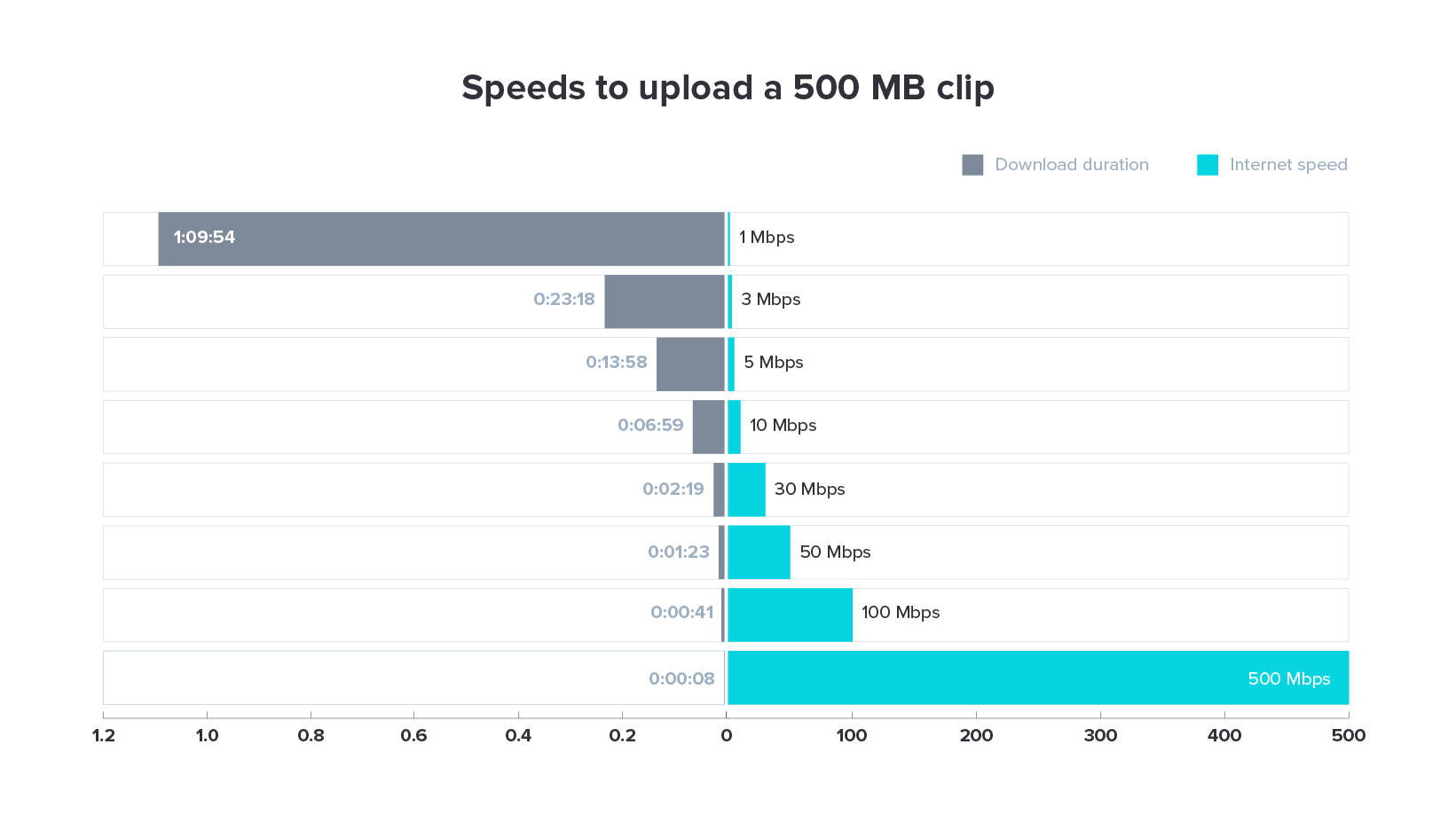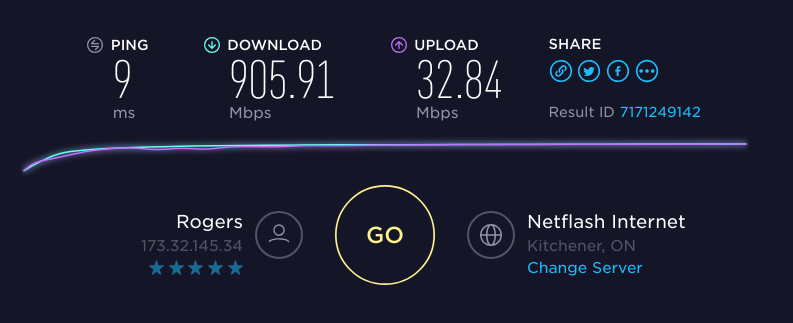Checking out the Partnership Between Megabits Per Second and Download Speeds
Checking out the Partnership Between Megabits Per Second and Download Speeds
Blog Article
Exactly How Megabits Per Second Effect Your Online Tasks
The idea of megabits per second (Mbps) plays a pivotal duty in shaping our on the internet experiences. Greater Mbps can improve performance and reduce disruptions, while poor speeds might cultivate irritation and inefficiency.
Recognizing Megabits Per Second
When taking into consideration web speed, it's vital to recognize the idea of megabits per second (Mbps), which serves as a typical dimension for data transfer prices. This metric evaluates how much information can be transmitted over a web connection in one second, offering a clear understanding of performance capabilities - Megabits Per Second. For context, one megabit amounts to one million little bits, and Mbps is typically made use of to share transmission capacity for various on the internet activities
A greater Mbps suggests a quicker internet link, making it possible for users to execute jobs such as downloading and install files, surfing sites, and taking part in online gaming extra successfully. For example, typical browsing needs around 1-5 Mbps, while streaming high-def video may require 5-25 Mbps. Understanding these demands is crucial for establishing the suitable internet speed required for certain tasks.
Furthermore, the number of gadgets connected to a network can affect total performance. Numerous customers streaming, pc gaming, or downloading concurrently can strain offered data transfer, causing slower speeds - Megabits Per Second. Evaluating personal online routines and needs is important in selecting a net strategy that straightens with one's needs, making certain a smooth digital experience
Streaming and Buffering Issues
Streaming high-definition content has actually come to be a staple of modern on-line home entertainment, yet it is usually gone along with by discouraging buffering issues. These disruptions can considerably take away from the checking out experience, bring about frustration and prospective loss of target market engagement. Buffering takes place when the data sent from the streaming solution is not received swiftly sufficient to keep a smooth playback, commonly due to insufficient internet speed determined in megabits per second (Mbps)

Additionally, real-time streaming can be impacted by network congestion, which occurs when numerous gadgets share the same bandwidth. Consequently, enhancing link rate and making certain ample Mbps is important for a seamless streaming experience. As streaming solutions continue to advance, recognizing the effect of Mbps on buffering problems remains critical for customers looking for nonstop enjoyment.
Online Gaming Efficiency
The impact of net speed on online tasks expands beyond streaming, dramatically influencing on the internet video gaming efficiency. In affordable pc gaming, reduced latency and high bandwidth are essential for a seamless experience. A rapid connection minimizes lag, allowing players to react swiftly to in-game occasions, which can be the difference between triumph and loss.
Bandwidth, gauged in megabits per second (Mbps), plays a crucial role in sustaining numerous gadgets and pc gaming systems simultaneously. Inadequate transmission capacity can bring about went down connections or lowered video game quality, adversely influencing gameplay. For circumstances, on-line multiplayer video games require significant data transfer, especially during peak gaming hours when countless gamers are online.
Hectic first-person shooters require higher rates to maintain responsiveness, while turn-based strategy video games may function moderately well on reduced rates. As on-line video gaming continues to progress, with boosting graphical fidelity and more complicated multiplayer atmospheres, the need for higher Mbps will only increase.
Video Clip Conferencing Top Quality
In today's digital landscape, video clip conferencing quality is greatly affected by web rate, especially in regards to transmission capacity and latency. Top notch video calls call for adequate data transfer to send audio and video clip data effortlessly. Normally, a minimum of 1.5 Mbps upload and download speeds is recommended for conventional meaning video, while high-def video conferencing typically requires at the very least 3 Mbps.
Latency, or the hold-up between sending out and obtaining data, additionally plays an essential duty in the user experience. Greater latency can lead to echo, lag, and disjointed interactions, which can prevent partnership and involvement during conferences.
Moreover, numerous individuals in a video clip meeting can stress available bandwidth, demanding even higher speeds. Network congestion, usually brought on by simultaneous activities like streaming or downloading, can additionally weaken video clip quality. Therefore, for organizations relying upon video conferencing for remote collaboration, understanding he has a good point the partnership in between megabits per second and general interaction top quality is vital for preserving efficiency and improving digital communications.
Picking the Right Net Plan
Picking an appropriate internet strategy is crucial for ensuring optimum performance in numerous on-line tasks, specifically in setups that require high transmission capacity, such as video clip conferencing and online pc gaming. Megabits Per Second. When considering a web strategy, it is crucial to review both the speed and data allowance to match your specific usage needs
For families with numerous individuals taking part in synchronised tasks, a strategy offering greater megabits per second (Mbps) is suggested. Generally, a minimum of 25 Mbps is appropriate for basic streaming and surfing, while strategies surpassing 100 Mbps are more suitable for even more extensive jobs. Additionally, think about the nature of your why not check here online tasks; video conferencing needs at the very least 1.5 Mbps post speed, while on the internet pc gaming may require a reduced latency however consistent connection.
Limitless data plans can avoid strangling and interruptions, specifically if heavy usage is expected. By thoughtfully selecting a web strategy customized to your demands, you can boost your on-line experience, ensuring smooth, undisturbed accessibility to your favored activities.
Conclusion
To conclude, the importance of megabits per second (Mbps) in forming on the internet tasks can not be overemphasized. Greater Mbps promotes smooth streaming, reduces buffering, boosts video gaming experiences, and makes sure top quality video conferencing. Alternatively, insufficient transmission capacity can lead to frustrating interruptions and diminished efficiency throughout different tasks. An extensive understanding of private or household Mbps needs is important for choosing a proper net strategy that effectively sustains diverse online activities and customer demands.

Normally, a minimum of 25 Mbps is suitable for basic streaming and surfing, while strategies going beyond 100 Mbps are better for more intensive jobs. Additionally, take into consideration the nature of your online activities; video clip conferencing requires at least 1.5 Mbps post speed, while online gaming might need a important source reduced latency yet consistent connection.
Report this page